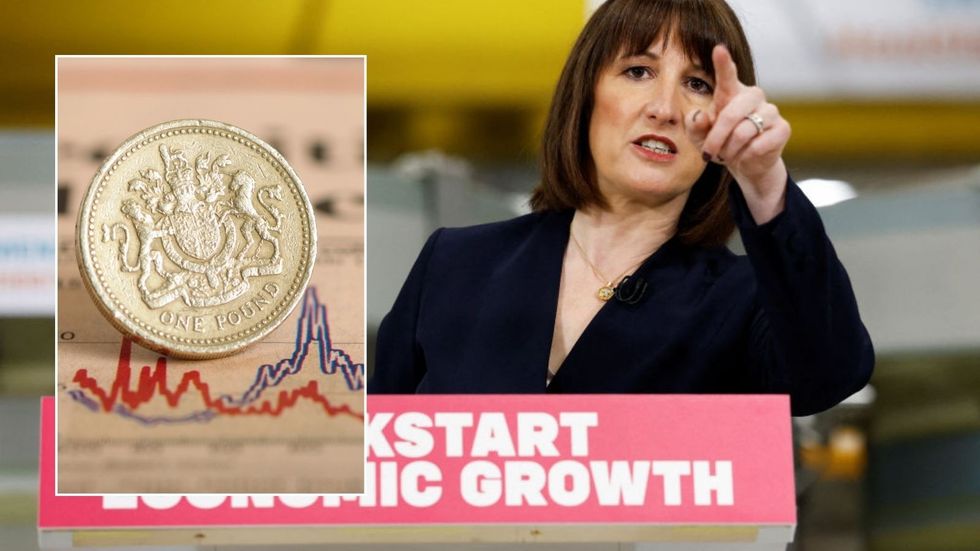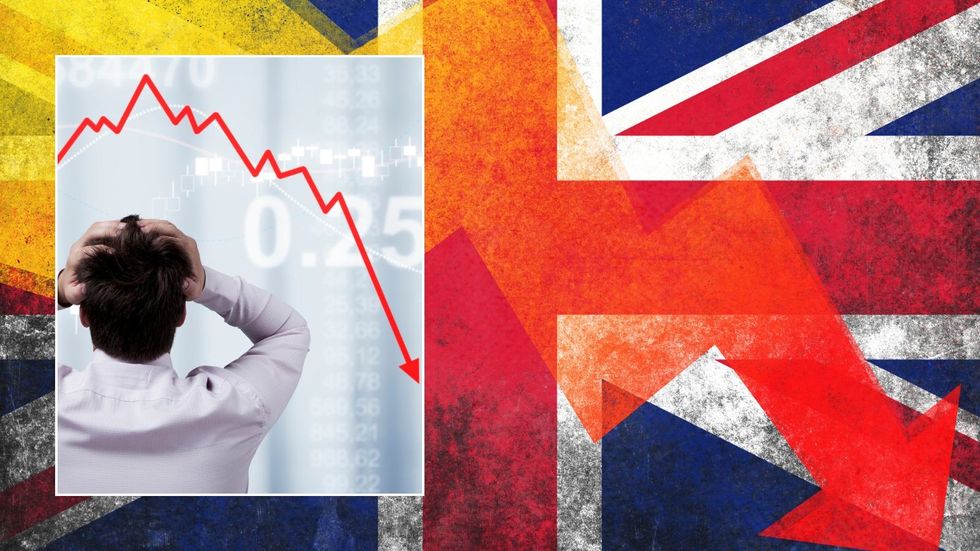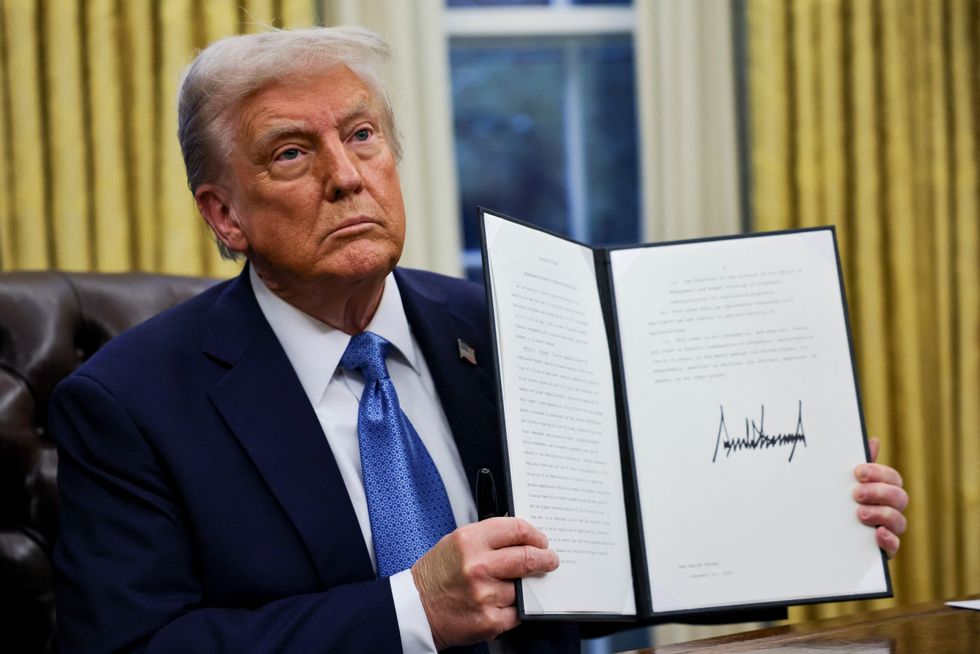Blow to Rachel Reeves's plans for economy as UK GDP growth forecast DOWNGRADED
Chancellor Rachel Reeves begins to outline her plans to grow the economy
The UK economy's GDP growth has slipped from 1.5 per cent to one per cent, according to EY Item Club's latest
Don't Miss
Most Read
Trending on GB News
Britain's economic growth forecast for 2025 has been downgraded to just one per cent by the influential EY Item Club, marking a significant reduction from its previous 1.5 per cent prediction.
This revised outlook delivers a blow to Chancellor Rachel Reeves and the Labour Government's spending plans, which rely heavily on accelerated gross domestic product (GDP) growth.
The downgrade follows a period of stagnant growth in late 2024, with the economy showing particular weakness in the final months of the year. GDP growth for 2024 reached only 0.8 per cent, according to the forecaster's winter report, suggesting minimal acceleration in the economy's expansion.
Furthermore, this forecast comes after a particularly weak end to 2024, which saw GDP rise by just 0.1 per cent in November following a 0.1 per cent decline in October.
The economy had shown no growth during the third quarter, setting a concerning precedent for the year ahead. Further pressures loom on the horizon, with businesses facing additional tax burdens and wage increases from April.
Do you have a money story you’d like to share? Get in touch by emailing money@gbnews.uk.

Rachel Reeves has been dealt another blow with the latest forecasts for the economy
GETTY
These mounting challenges are expected to impact private sector confidence, particularly in the first half of 2025. The combination of tightening financial conditions and global trade uncertainty presents significant headwinds for British businesses.
Despite the challenges, household confidence is expected to improve through 2025, with consumer spending forecast to rise by 16 per cent. The outlook presents a mixed picture for British businesses and consumers alike.
Business investment is projected to increase, though firms face headwinds from tightening financial conditions and global uncertainties. Many households are expected to feel less financial pressure by the end of 2025, supported by continued real wage growth.
EY's Anna Anthony notes that following a prolonged period of financial uncertainty, the UK economy could be poised to turn a corner and achieve stronger growth levels this year.
 High inflation and interest rates have been a weight on the UK economy in recent years GETTY
High inflation and interest rates have been a weight on the UK economy in recent years GETTY Inflation pressures are set to persist through 2025, with Consumer Price Index expected to average 2.8 per cent remaining above the Bank of England's two per cent target. The elevated inflation rates are partly attributed to firms passing on increased costs from higher employer national insurance contributions to customers.
In response to these sustained inflationary pressures, interest rates are predicted to see gradual reductions. The EY Item Club forecasts one interest rate cut per quarter throughout 2025.
By year-end, UK interest rates are expected to reach 3.75 per cent, offering some relief to borrowers while maintaining inflation control. Looking ahead, the UK economy is forecast to achieve stronger growth of 1.6 per cent in 2026, suggesting a gradual recovery from current challenges.
"Despite the subdued finish to 2024, there are signs that the UK economy could turn a corner and achieve stronger levels of growth this year," said Anna Anthony, EY UK regional managing partner.
She added that consumer confidence should improve as real wages continue to rise. The outlook remains complex, with businesses facing a mixed landscape of increased investment opportunities alongside persistent economic headwinds.
As it stands, analysts are pricing in multiple cuts to the base rate from the Bank of England in 2025 with the Monetary Policy Committee (MPC) expected to slash borrowing costs to 4.5 per cent later this week.
LATEST DEVELOPMENTS:
 Donald Trump signed three executive orders green-lighting trade tariffs against China, Mexico and CanadaREUTERS
Donald Trump signed three executive orders green-lighting trade tariffs against China, Mexico and CanadaREUTERSHowever, experts are sounding the alarm after US President Donald Trump introduced tariffs on allies, including Mexico, Canada and possibly the European Union, warning it could impact the UK down the line.
Economist Cosa Milas said: "One can only hope that Trump will prioritise again the stock market over substantial tariffs on imports, therefore reducing the risk of tariff-related spikes in inflation and interest rate hikes in 2025.
"In such scenario, the Trump-related risk of higher UK inflation will not materialise and, consequently, UK interest rate cuts should come as early as February 2025. This cut in interest rates is not wishful thinking.
"Revised GDP data published on 23 December 2024 point to a possible contraction in the fourth quarter of 2024. The economy’s quarter-on-quarter GDP growth in 2024 has been revised down to 0.4 per cent (from 0.5 per cent previously) for the second quarter and to 0 per cent (from 0.1 per cent previously) for the third quarter."








